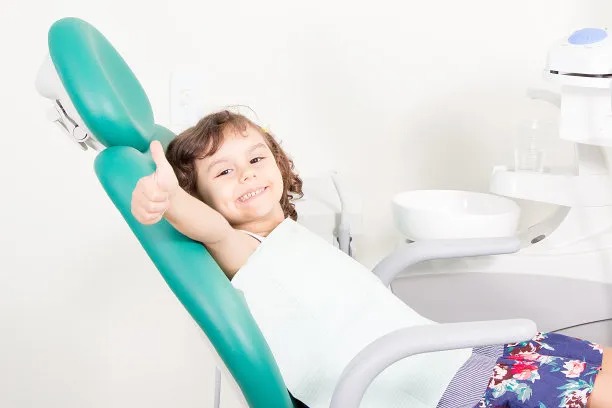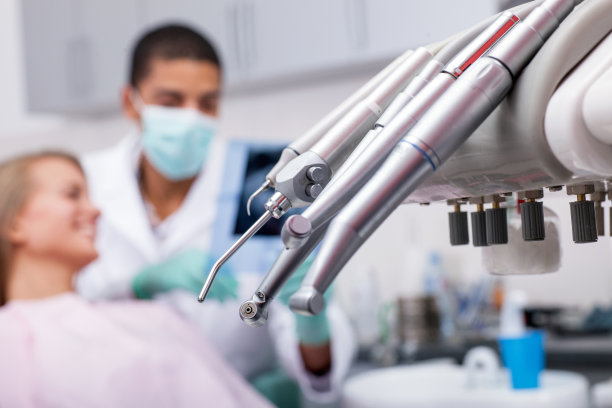Summary: Receiving dental fillings is a common dental procedure aimed at restoring the integrity of a tooth affected by decay. To ensure optimal oral health and recovery, several essential precautions should be taken both before and after the procedure. This article outlines four key areas to consider: pre-appointment preparations, managing post-treatment care, dietary guidelines following the procedure, and maintaining long-term oral hygiene. By adhering to these precautions, patients can facilitate a smoother recovery and enhance the lifespan of their dental fillings, thereby promoting overall dental well-being.
1. Preparing for Your Dental Appointment

Before receiving dental fillings, it is essential to have a thorough understanding of the procedure and its implications. Begin by discussing with your dentist any concerns or questions you may have to ensure you are comfortable and informed. Understanding the types of fillings available can also assist you in making an educated choice that suits your oral health needs.
Another crucial aspect is to provide your dentist with a complete medical history. Inform them about any allergies, medications, or pre-existing conditions that may affect the treatment. This information will help the dentist to tailor your experience to prevent any adverse reactions and ensure a smoother procedure.
Arranging for transportation can also be a significant consideration. If you anticipate receiving anesthesia or sedation, it is advisable to have someone accompany you. This ensures that you have assistance when leaving the clinic, as your ability to drive may be impaired post-treatment.
2. Essential Post-Treatment Care
After receiving dental fillings, proper care is vital for recovery and the longevity of the filling. Initially, you may experience some sensitivity in the treated area. To mitigate discomfort, you should consider avoiding extremely hot or cold foods and beverages for a few days to allow the tooth to acclimatize.
Oral hygiene should also be a priority following the procedure. Gently brush your teeth, paying close attention to the area around the filling. However, avoid using mouthwash for at least 24 hours to prevent any irritation to the site of the filling. Incorporating a soft-bristled toothbrush can further aid in maintaining cleanliness without causing undue pressure.
Monitoring for any unusual symptoms is critical post-treatment. If you notice increased pain, swelling, or a persistent sensitivity that lasts for more than a few days, contact your dentist immediately. These symptoms can indicate complications that may need further attention to ensure optimal recovery.
3. Dietary Guidelines After Fillings
Your diet plays a crucial role in the healing process after receiving dental fillings. Initially, sticking to a soft diet for the first 24-48 hours is advisable. Foods such as yogurt, smoothies, and mashed potatoes are gentle on the teeth and reduce the risk of discomfort.
Avoid sticky or hard foods that may dislodge the filling or cause discomfort during the initial healing phase. Items like caramel, nuts, or crusty bread can be problematic for newly filled teeth, potentially leading to complications. After the initial healing phase, gradually reintroducing your regular diet while still exercising caution with hard or sticky items is recommended.
Hydration is equally important. Drinking plenty of water not only aids in overall recovery but also ensures that your saliva production remains stable, which is essential for oral health. Proper hydration helps in the natural cleaning of your mouth and minimizes the risk of infection at the filling site.
4. Maintaining Long-Term Oral Hygiene
Once your dental fillings have settled, maintaining excellent oral hygiene practices will ensure their longevity. Regular brushing twice a day and flossing daily are paramount. Focus on the areas around the fillings to prevent plaque buildup, which can compromise the health of your teeth.
Regular dental check-ups are non-negotiable. Schedule routine visits to your dentist every six months to monitor the condition of your fillings and overall oral health. These visits can catch any potential issues early, allowing for prompt treatment and extending the life of your fillings.
Consider using an antibacterial mouthwash to supplement your oral hygiene regimen. This can help reduce the growth of bacteria that lead to decay, a crucial factor in maintaining the durability of your dental fillings. A healthy dental routine will not only protect your fillings but also enhance your overall oral health.
Summary:
In summary, carefully considering precautions before and after receiving dental fillings can significantly impact your recovery and oral health. By preparing adequately, managing post-treatment care effectively, adhering to dietary guidelines, and maintaining long-term hygiene practices, you can enjoy the benefits of your treatment and avoid complications.
This article is compiled by Vickong Dental and the content is for reference only.
Vickong Dental
Vickong Dental is a large medical group established in Hong Kong in 2008 by professors from well-known medical universities in Guangdong and Hong Kong, as well as medical doctors from key national '985' universities (including Master's supervisors and senior professors). The chain of branches brings together expert dentists with PhDs and Master's degrees from Hong Kong and Mainland China, committed to providing high-quality dental treatment.
"Vickong Dental Practices the University Motto of 'Healing and Serving Society,' with a Stable Operation for Sixteen Years. It Has Been honored with Hong Kong Enterprise Leaders's Choice,' and is a Global Trusted Implant Center for the Nobel Implant System. Recommended by Hong Kong Metro Broadcast and Guangdong Television, it Serves Customers from Over Thirty Countries and Regions, Gaining the Trust and Favor of Citizens from the Guangdong-Hong Kong-Macau Greater Bay Area and Surrounding Cities.

Thousands of customers' unanimous praise
The most recognized and highly recommended dental service by customers in the Guangdong-Hong Kong-Macau Greater Bay Area
We Ensure You Receive Detailed Care and Attention Here
Hong Kong standards, Shenzhen prices, Your Trusted English-speaking dentists

Vickong Dental Medical-Grade Instrument Disinfection Process
Vickong Dental Medical-Grade Instrument Disinfection Process

Vickong Dental Chain: A Warm and Comfortable Environment for Treatment






Appointment Hours

Q&A
Why choose Vickong Dental?
Vickong Dental practices the university motto 「Medicine to Benefit Society」, with each branch bringing together highly qualified dentists with doctoral and master’s degrees from Hong Kong and the Mainland, and has maintained seventeen years of steady operation。Recipient of 「2024 Hong Kong Enterprise Leaders Brand」, 「2025 Hong Kong Enterprise Leaders Brand」, a Nobel Biocare Global Trusted Implant Center, and a brand recommended by Metro Radio Hong Kong and Guangdong TV。
To date, we have served customers from more than thirty countries and regions,earning exceptionally high word-of-mouth recognition and trusted recommendations from residents across the Guangdong-Hong Kong-Macao Greater Bay Area and surrounding cities
We have eight major branches in Zhuhai、Shenzhen,and a consultation and service assurance center in Hong Kong,so you can book a free consultation at any time for any questions,which is very reassuring.
If I do not accept the quotation after the CT scan, will I be charged??
No! As long as the actual treatment has not started, you will not be charged any fees.
Will there be any additional charges during the treatment process?
No, there won’t be any additional charges. Before treatment begins, we will clearly explain the treatment plan and its corresponding fees. Only after the patient agrees and signs the consent form will we proceed with the dental service.
Can I pay in Hong Kong dollars?
Yes. Vickong Dental accepts payment in Hong Kong dollars. The amount will be converted based on the exchange rate of the day, and the applicable rate will be clearly communicated to you in advance.
Can I reschedule my appointment at any time?
Yes. Please contact us via **WeChat** or **WhatsApp** as early as possible, providing your original appointment time and details, along with your preferred new date and time slot for rescheduling.













